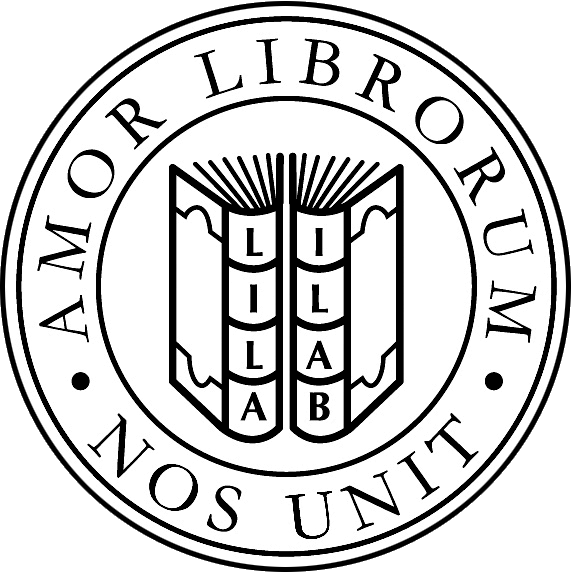Dealer in Rare and First-Edition Books: Western Americana; Mystery, Detective, and Espionage Fiction
Fort Smith Times Record Newspaper: February 18, 1921, Henry Starr, Shot In Bank Robbery, Is Dying. [With] February 22, 1921, Henry Starr, Bank Bandit, Dies At 1:25 Today
FORT SMITH TIMES RECORD
Other works by FORT SMITH TIMES RECORDPublication: Fort Smith Times Record, 1921, Fort Smith, Arkansas
First editions. Each newspaper has nine pages, the featured story, related news stories of the day, and advertisements. All pages have been professionally deacidified, straightened and mounted in acid-free mylar envelopes. The February 18th Fort Smith Times gives a detailed account of the attempted robbery of the State Bank in Harrison, Arkansas. It praises the courage of W. J. Meyer, who after stepping inside the vault, found a Winchester and shot Starr. The February 22nd Fort Smith Times reports his death surrounded by his wife, mother and son, Theodore Roosevelt Starr. It states that "he said goodbye to them with a nod of the head and smile just before consciousness left him." Standing 6'7," Henry Starr began his outlaw career in 1891, selling whiskey to Indians. Before long he graduated to stealing horses, then onto robbing banks and trains. His first robbery was a train depot in 1892 after which he shot and killed a deputy U.S. marshal in cold blood. He and his gang went onto robbing two banks, a train and railroad depot in a three-month period. Henry was captured in Colorado and sent back to Fort Smith where Federal Judge Isaac Parker sentenced him to hang. Through appeals, Starr's sentence was reduced to serving 15 years in jail. While he was sitting in a Fort Smith jail the notorious Cherokee Bill made a break; Henry managed to talk him into surrendering. His action earned Henry a pardon from President Theodore Roosevelt in 1903. After another series of robberies in Colorado, Henry was back behind bars. After serving his time Henry collected what was left of his gang and on March 27th, 1915 rode into Stroud, Oklahoma, and robbed two banks at the same time. Henry was shot in the leg during the robbery, captured and sentenced to 25 years; however, because of his good conduct he only served 4 years. After being paroled Henry went to Hollywood and starred as himself in the silent movie A Debtor to the Law, a movie about how crime doesn’t pay. He didn't stay honorable for long .... in 1920 Henry robbed two banks in Oklahoma. Then in February, 1921, Henry and three pals, driving a Model T Ford, tried to rob a bank in Harrison, Arkansas. The banker W. J. Meyers opened up with a shotgun mortally wounding Starr. His cohorts in crime escaped. During his 32 years of crime Henry Starr robbed more banks than both the James-Younger Gang and the Doolin-Dalton Gang combined, netting over $60,000 from more than 21 bank robberies. Times Record for February 18, 1921: Gives details of the attempted bank robbery and Starr's subsequent shooting by W. J. Meyer, a former president of the bank. Gives details of his previous criminal escapades including an excerpt from Bill Tilghman's "Oklahoma Outlaws." Times Record for February 22, 1921: Reports the death of Starr. Includes a statement from the Arkansas Bankers Association praising W. J. Meyers [sic] and observing that "We need a little more guts and a little less reliance on insurance policies." Newspapers are uniformly toned, a little fraying to the edges with holes along one side from having been mounted in an album binder at one time. Overall very good copies.
Inventory Number: 52184
![Fort Smith Times Record Newspaper: February 18, 1921, Henry Starr, Shot In Bank Robbery, Is Dying. [With] February 22, 1921, Henry Starr, Bank Bandit, Dies At 1:25 Today FORT SMITH TIMES RECORD](/media/images/large/52184.jpg)
![Fort Smith Times Record Newspaper: February 18, 1921, Henry Starr, Shot In Bank Robbery, Is Dying. [With] February 22, 1921, Henry Starr, Bank Bandit, Dies At 1:25 Today FORT SMITH TIMES RECORD - Image 2](/media/images/thumb/52184_4.jpg)
![Fort Smith Times Record Newspaper: February 18, 1921, Henry Starr, Shot In Bank Robbery, Is Dying. [With] February 22, 1921, Henry Starr, Bank Bandit, Dies At 1:25 Today FORT SMITH TIMES RECORD - Image 3](/media/images/thumb/52184_3.jpg)
![Fort Smith Times Record Newspaper: February 18, 1921, Henry Starr, Shot In Bank Robbery, Is Dying. [With] February 22, 1921, Henry Starr, Bank Bandit, Dies At 1:25 Today FORT SMITH TIMES RECORD - Image 4](/media/images/thumb/52184_2.jpg)
![The Utah Expedition 1857-1858. Letters Of Capt. Jesse A. Gove, 10th Inf., U. S. A., Of Concord, N. H., To Mrs. Gove, And Special Correspondence Of The New York Herald. GOVE, CAPT JESSE A. [EDITED BY OTIS G. HAMMOND].](/media/images/thumb/48785.jpg)

![Sport And Travel In Canada. [DEPARTMENT OF TRANSPORT, OTTAWA, CANADA].](/media/images/thumb/51633.jpg)






